Have you ever wondered how children develop their thinking, problem-solving, and language skills? Exploring cognitive development in children is a fascinating journey that unravels the mysteries of their mental growth. It involves understanding how their minds evolve and what factors contribute to their cognitive abilities.
Table of contents
- Introduction to Cognitive Development
- Stages of Cognitive Development
- Sensory Development and Perception
- Memory and Learning
- Attention and Focus
- Problem-solving and critical thinking
- Language Development
- Cognitive Development Milestones
- Nurturing Cognitive development at home and school
- Conclusion
- Frequently Asked Questions
Introduction to Cognitive Development
Cognitive development means the ability to think and reason. Children ages 6 to 12, usually think in concrete ways. This can include things like how to combine, separate, order, and transform objects and actions. It is how a person thinks and gains an understanding of their world through the relations of genetic and learning factors. There are four stages to cognitive information development. They are reasoning, intelligence, language, and memory.
Cognitive development teaches students the skills they need to learn effectively. This helps students build transferable problem-solving and study skills that they can apply in any subject. Developing cognitive skills allows students to build upon previous knowledge and ideas.
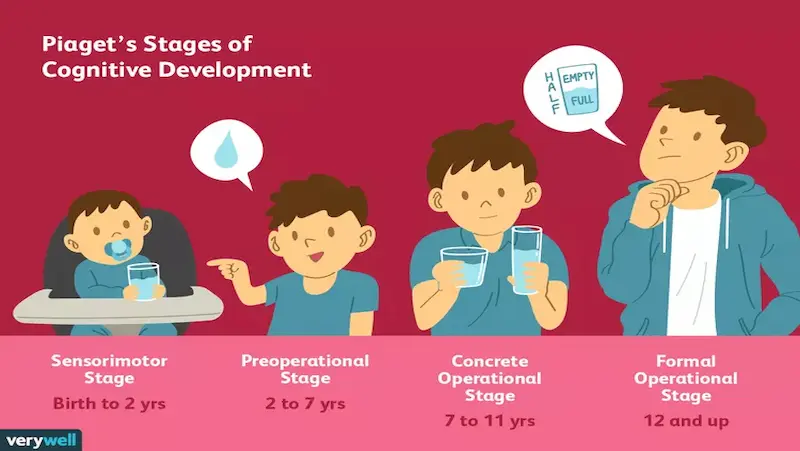
Stages of Cognitive Development
Piaget proposed four stages to describe the development process of children: The sensorimotor stage, the pre-operational stage, and the formal operational stage. Each stage describes a specific age group. In each stage, he described how children develop their cognitive skills.
Piaget argued that children’s cognitive development occurs in stages. The stages in this theory follow For specific order and each subsequent stage only occurs after the one before it.
These stages are:
- Sensorimotor stage(0-2 years old)
- Preoperational stage(2-7 years old)
- Concrete operational stage(7 to 11 years old)
- Formal operational stage(12 and up)
1. Sensorimotor stage
During the Sensorimotor stage, children go through a period of dramatic growth and learning. As kids interact with their environment, they continually make new discoveries about how the world works.
Major characteristics and development changes during this stage:
- Know the world through movements and sensations.
- Learn about the world through basic actions such as sucking, grasping, looking, and listening.
- Learn that things continue to exist even when they cannot be seen.
- Realize that they are separate beings from the people and objects around them.
- Realize that their actions can cause things to happen in the world around them.
2. Pre Operational stage
At this stage, kids learn through pretend play but still struggle with logic and taking the point of view of other people.
Major characteristics and development changes during this stage:
- Begin to think symbolically and learn to use words and pictures to represent objects.
- Getting better with language and thinking, but still tend to think in very concrete terms.
3. Concrete operations stage
During this stage, children also become less egocentric and begin to think about how other people think and feel. Kids in the concrete operational stage also begin to understand that their thoughts are unique to them and that not everyone else necessarily shares their thoughts, feelings, and opinions.
Major characteristics and development changes during this stage:
- Begin to think logically about concrete events.
- Thinking becomes more logical and organized, but still very concrete.
4. Formal operational stage
The final stage involves an increase in logic and the ability to use deductive reasoning and an understanding of abstract ideas.
Major characteristics and development changes during this stage:
- Begins to use deductive logic, or reasoning from a general principle to specific information.
- Begins to think abstractly and reason about hypothetical problems.
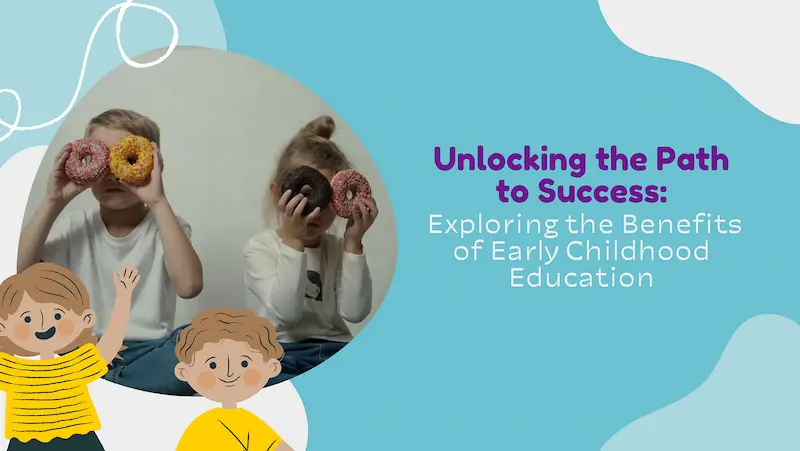
We offer coding courses for kids to introduce them to the exciting world of programming and foster their creativity and problem-solving skills.
Sensory Development and Perception
Through Sensory play, kids learn to describe things and engage their imagination to create stories and ideas.
Sensory development enhances the use of your child’s senses by incorporating different colors, textures, noises, and more into their early education. This learning process encourages children to play safely and engage with their surroundings as well as improve their brains.
Sensory development refers to the five familiar senses: hearing, smell, taste, touch, and vision. It also involves the way your baby or child’s nervous system receives input from these senses and then forms an appropriate motor or behavioral response.
Here are some of the sensory play ideas and activities:
- Create sensory bin
- Calming bottles
- Sandbox
- Swing
- Playdough
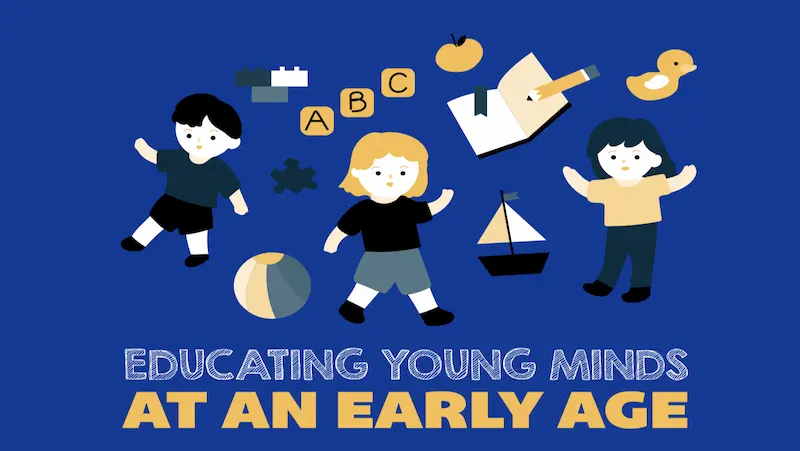
Memory and Learning
Learning and memory are two closely related cognitive functions that are fundamental to our ability to interact with the world in a meaningful way. Learning is the process of acquiring new information about the world. Memory is the retention or storage of such information, like a series of numbers.
Memory begins in sensory memory, transitions to short-term memory, and then may move to long-term memory. A memory a person uses only for a brief time, such as a word that they use at the beginning of a sentence, is a part of working memory and may never move to another part of memory.
Write down the tasks, say them out aloud, walk around to show them, let them use their hands to discover them further, or show an illustration of the activity. Doing this will stimulate different brain regions and help children strengthen their memory towards the task or the knowledge that needs to be retained.
Mnemonic techniques: mnemonic techniques can include songs, poems, rhymes, outlines, images, and acronyms. Mnemonics give meaning to something ordinary to make it more memorable when you try to recall it. This technique is useful for storing information in both your short and long-term memory.
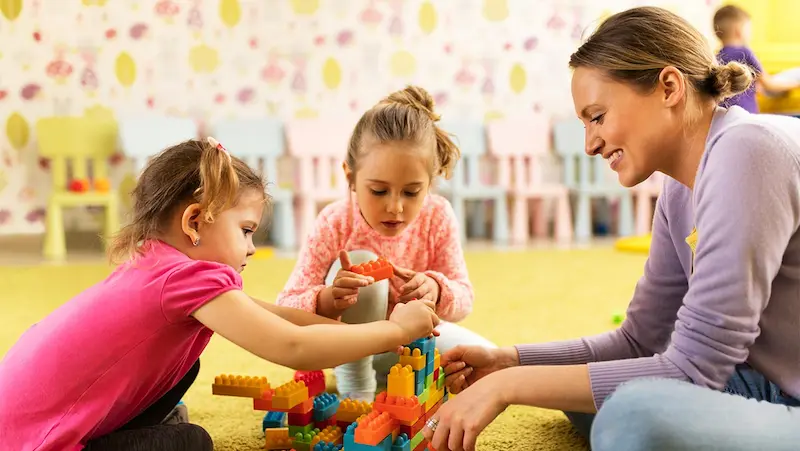
Attention and Focus
Effective attention is what allows us to screen out irrelevant stimulation in order to focus on the information that is important at the moment. This also means that we are able to sustain attention which then allows us to engage in a task for long enough to repeatedly practice it.
Childhood development experts generally say that a reasonable attention span to expect of a child is two or three minutes per year of their age. That’s the period of time for which a typical child can maintain focus on a given task. Average attention spans work out like this: 2 years old: four to six months.
Practical tips and activities to enhance children’s attention and focus:
- Use fidgets.
- Play concentration games
- Practice belly breathing
- Mind-body integration
- Story-based games
Reading stories for children is one of the easiest ways to help them learn to focus. Working on a puzzle or building something out of Lego is another enjoyable way to help build your child’s attention span. You need to be aware of the difference between what you want your children to do and what they like to do.
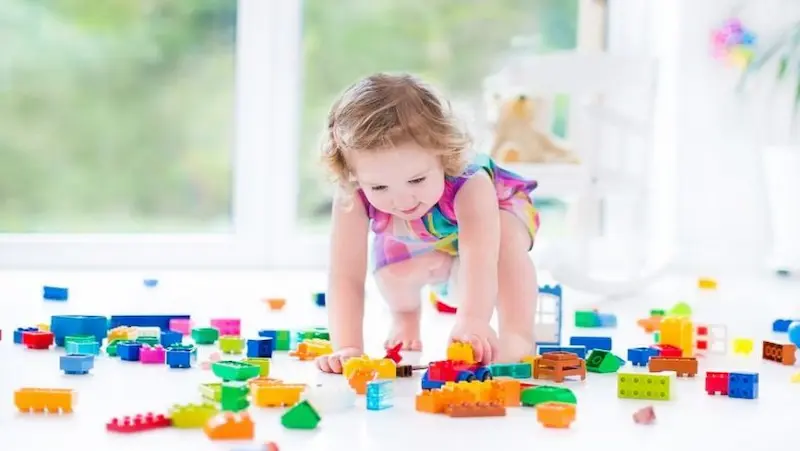
Problem-solving and critical thinking
Allow your child to choose activities and games based on her interests. Free play provides plenty of opportunities to navigate and creatively solve problems. Children often learn best through play. Playing with items like blocks, simple puzzles, and dress-up clothes can teach your child the process of problem-solving.
Stages of problem-solving and the importance of Critical thinking:
- Interpret
- Present
- Evaluate
- Analyze
Critical thinking skills are important because they enable students to deal effectively with social, scientific, and practical problems. Examples of problem-solving activities and games are:
- Scavenger hunt
- Puzzles
- Maze
- Human knot
- Stories
- Brainstorming
- Building games
- tic-tac-toe
Techniques to foster creativity and analytical thinking in Children:
- Make time for creative art
- Let children plan playdates
- Don’t solve all their problems
- Encourage construction
- Let kids resolve conflict independently
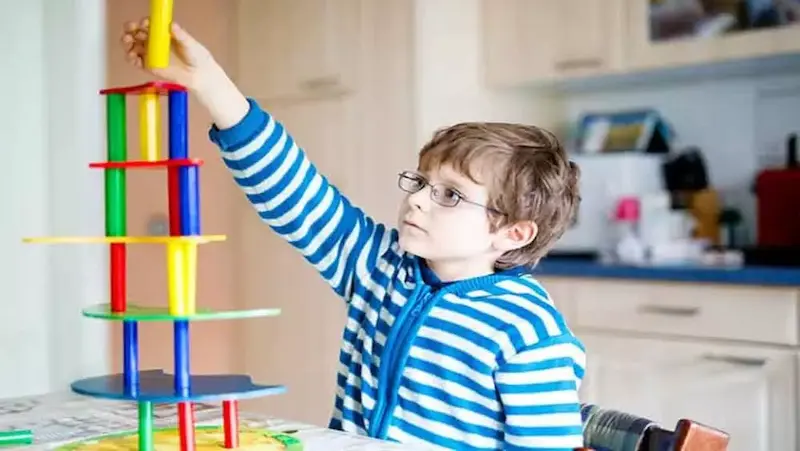
Language Development
Language skills enable a child to communicate with others in his or her environment, which encourages the development of cognitive skills and promotes socio-emotional regulation through social interactions.
Stages of language acquisition and development
These stages are typically understood to consist of prelinguistic and linguistic categories.
- The prelinguistic stage
- babbling stage
- the words stage
- the two-word stage
- telegraphic stage.
Strategies to support language development
- Use a gesture along with the word you say
- Talk to me about what you’re reading
- Talk to me about what you’re doing
- When I point to something, tell me what it is
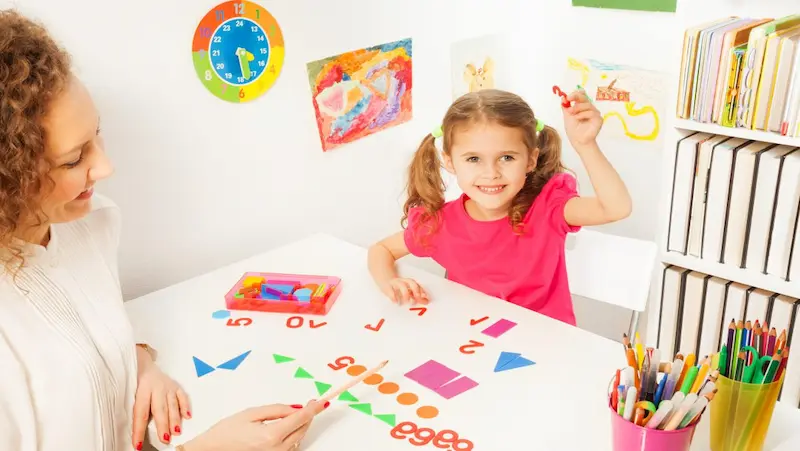
Cognitive Development Milestones
Cognitive development milestones are a set of benchmarks that represent important steps forward in a child’s life. These milestones reflect how a child’s brain develops and include thinking, learning, exploring, and problem solving skills.
Typical cognitive development milestones
Show increasing ability to reason, make educated guesses, and sort fact from fiction. Start thinking more abstractly, comparing what is to what could be. Think about and come up with ways to deal with hypothetical situations.
Variations and factors that can influence cognitive development
- Biological factors such as child birth weight, nutrition, and infectious diseases
- Environmental factors such as home environment, the position of appropriate play
- Socio-economic such as parental assets, income and education
How can parents support early learning?
- Reading to your child
- Practising cutting together
- Pointing out and talking with your child about names, colors, shapes, numbers, and sizes.
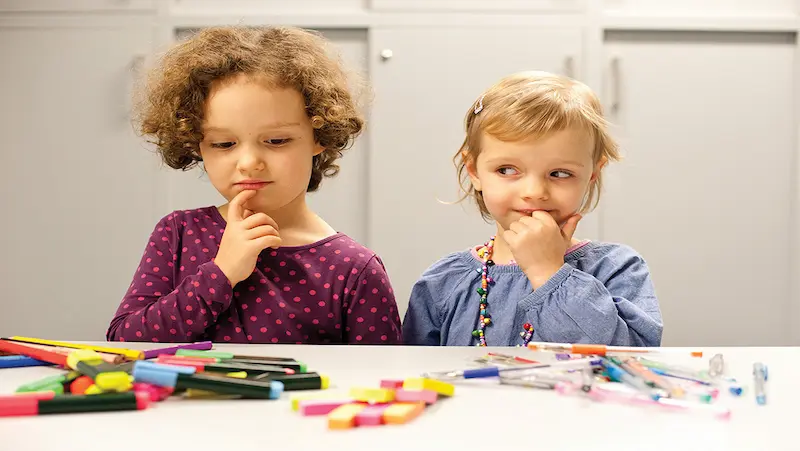
We offer robotics classes for kids, where they can learn to build and program robots, igniting their curiosity and passion for STEM fields.
Nurturing Cognitive development at home and school
Nurturing cognitive development at home and school involves creating a stimulating and supportive environment that encourages learning and growth. Parents and educators can foster cognitive development by engaging children in activities that challenge their thinking, such as puzzles, reading, and problem-solving games.
Providing age-appropriate toys and games that promote cognitive skills, like building blocks and memory games, can also be beneficial. However, it is important to maintain a balanced approach, considering social, emotional, and physical development alongside cognitive growth.
By encouraging curiosity, providing opportunities for exploration, and offering support and guidance, parents and educators can help children develop their cognitive abilities and reach their full potential. Parents and teachers can encourage healthy cognitive development in children by using the following ways:
- Encourage problem-solving in the classroom
- The value and importance of play
- Using active music and play experiences to support infant and toddler thinking
- Making choices when arranging the classroom environment
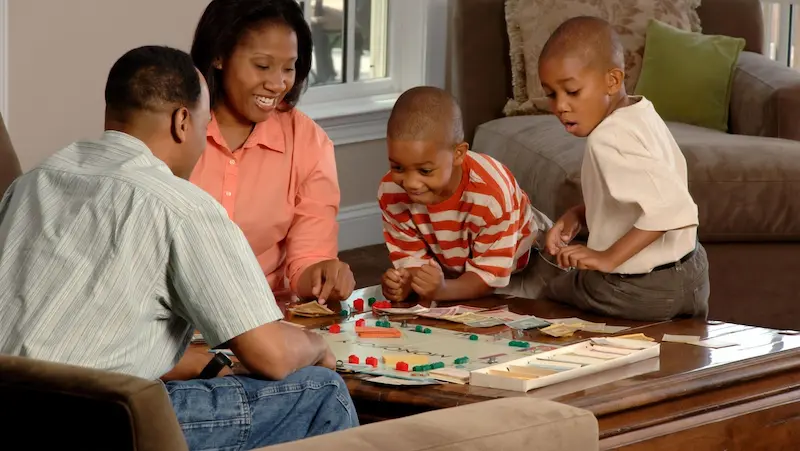
Conclusion
In conclusion, cognitive development in children plays a crucial role in shaping their overall growth and future success. By providing a stimulating and supportive environment, parents and educators can enhance children’s cognitive abilities.
Engaging them in age-appropriate activities, toys, and games that promote critical thinking, problem-solving, and creativity can foster cognitive skills. However, it is essential to maintain a balanced approach, recognizing the importance of social, emotional, and physical development as well.
By nurturing cognitive development alongside other areas of growth, children can develop a well-rounded set of skills and competencies that will serve them throughout their lives, empowering them to thrive academically, socially, and personally.
Also, BrightChamps provides a comprehensive platform for learning about money for kids, offering interactive and engaging resources that teach financial literacy, budgeting, saving, and other essential money management skills.
Frequently Asked Questions
Cognitive development in children refers to the growth and progression of their thinking, problem-solving, memory, attention, and language skills.
Cognitive development begins at birth, but significant leaps occur during infancy, toddlerhood, and early childhood.
Key factors that influence cognitive development in kids include genetics, environment, nutrition, stimulation, and social interactions.
Cognitive development has a profound impact on other areas of a child’s development, including language skills, problem-solving abilities, academic performance, and social interactions.
Common cognitive milestones in early childhood include object permanence, symbolic play, language development, and the ability to understand and follow simple instructions.
Strategies to support cognitive development in children include providing a stimulating environment, engaging in age-appropriate activities, reading aloud, encouraging curiosity, and promoting problem-solving.
Warning signs of delayed cognitive development include significant delays in reaching cognitive milestones, difficulty with memory or attention, language delays, and struggles with problem-solving.
While cognitive development follows a natural progression, it can be enhanced through a supportive environment, engaging activities, and early intervention for any potential delays.
Playtime contributes to cognitive development in kids by promoting imagination, problem-solving, social interactions, language skills, and creativity.
Engaging activities and games that promote cognitive development include puzzles, building blocks, memory games, storytelling, pretend play, sorting and categorizing activities, and interactive educational apps or computer programs.

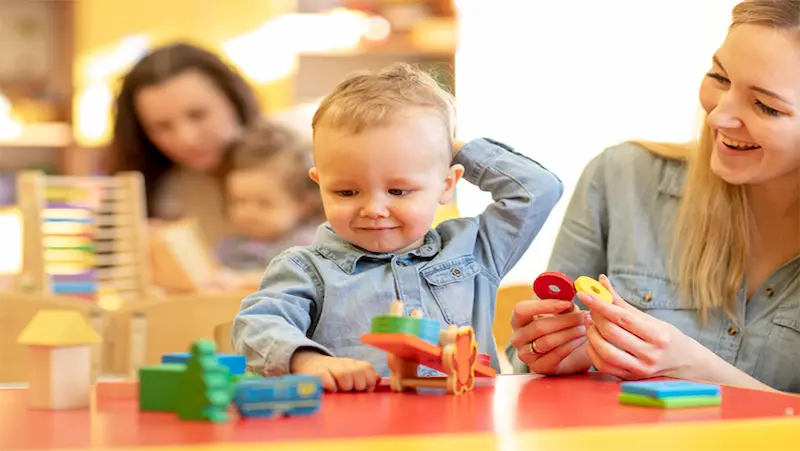
 We are an army of educators and passionate learners from BrightChamps family, committed to providing free learning resources to kids, parents & students.
We are an army of educators and passionate learners from BrightChamps family, committed to providing free learning resources to kids, parents & students.







